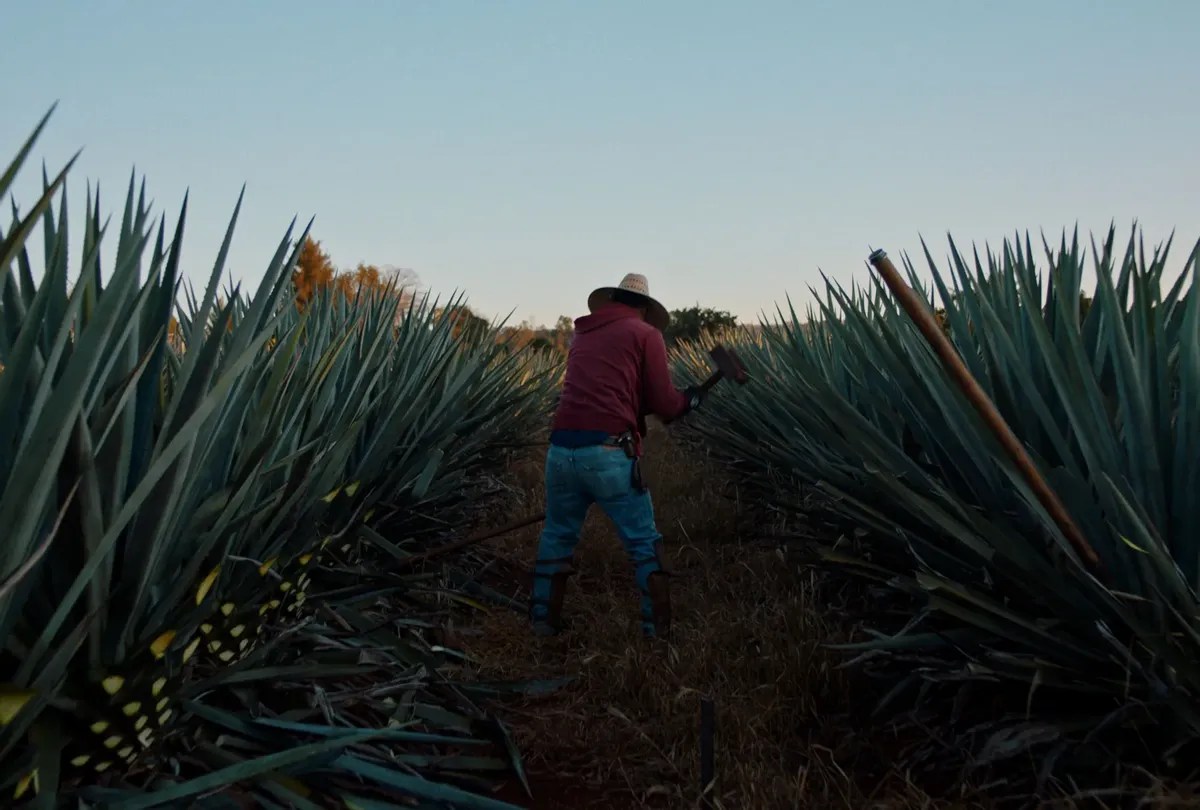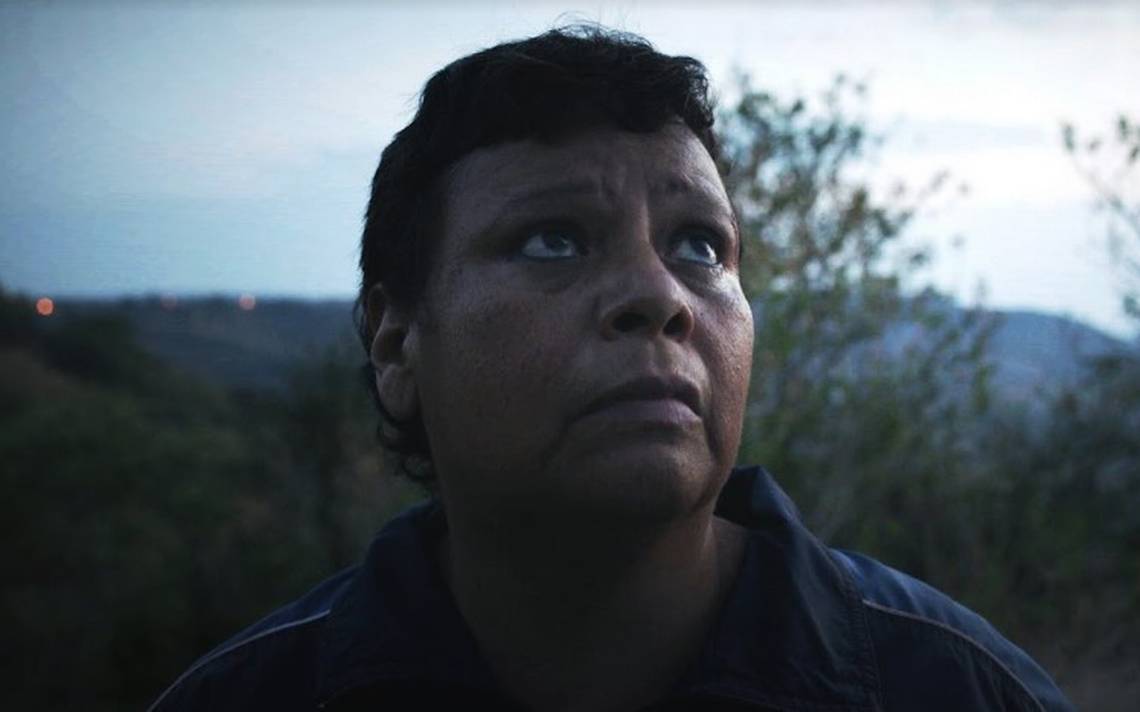


Men in wide sombreros and long-sleeved shirts that fend off cuts from the sharp leaves harvest agave plants in the opening scene of “Dos Estaciones” (Two Stations), an intimate drama about a family business and hopes beyond it facing the trials of the farmer/distiller’s lot in life.
Things are percolating along at the Coleman Spirits distillery, which María presides over like a matriarch to-the-business born. She doesn’t have to say “We’re like family” here for it to be understood as she works among men and women she’s known all their lives.
María, sturdy, fiftyish and “mannish,” as people used to say, is followed as she purposefully walks the fields, the factory floor, supervises the packaging of the tequila and even samples it with her meals. She (Teresa Sánchez) is friendly but keeps the “boss lady” distance necessary to run a small business. If the tortillas get cold at lunch, she isn’t shy about barking at the cook.
But this queen of all she surveys seems lonely. The work she’s hurled herself into has deprived her of everything else. We can see it as she almost melts when Tatín (Tatín Vera) massages her scalp as María gets “the usual (in Spanish with English subtitles)” haircut — short and unfussy and butch.
The business she is watching like a hawk has problems. “Plague” is wreaking havoc with the crops. Agave takes five years to mature, and the virus is hitting other farms nearby. María may have the hacienda and modernish factory and plenty of dependent employees. But her truck won’t start and the staff is on reduced wages, so “the tequila boom” has hit a rough patch.
And then, socializing with her oldest and most trusted employee’s family, a pretty young woman with bookkeeping/office experience, Rafaela (Rafaela Fuentes), hits her up for a job. We’ve seen the state of the business, but as María hears her out, we sense that this is a hire she needs and wants, a possibility of something more than somebody to get her business affairs in order.
Director and co-writer Juan Pablo González brings a documentarian’s eye to the life and world of agave growing, harvesting and fermenting in and around a tiny town in Jalisco, Mexico. The labor is timeworn, and there are working-class pleasures like informal horse races down a dirt road behind town. We see the co-dependence of an eco-system centered around the local distilleries and the denial that María settles into over the dire state of affairs she faces — plague, flash floods, shifting suppliers, bills piling.
Sánchez is the center and heart and soul of the film, mostly poker-faced even as she starts acting-out at employees who have to move on when she can’t pay them, grinning only when she’s doing donuts in the dry dirt in a pickup truck she borrows, trying to impress Rafaela with the lands, the crops she’s diversified into and the foresight she once had.
González made a film of muted tones and emotions, a movie that pulls you in as he makes you come to it. Little things like waiting a good, long while before identifying María by name, never IDing Rafaela and Tatín, even as he lets the story follow the hairdresser for a few scenes make us focus, but also can be frustrating as you make sense out of why we’re seeing this side of Tatín.
“Dos Estaciones” has the feel of a docu-drama, even if there seems to be little sign that this small story is being writ large. Norteamericanos haven’t lost their taste for margueritas, after all. It’s the detail, the sense of small lives closed off and growing more isolated that makes this film worth watching.
Rating: unrated, profanity
Cast: Teresa Sánchez, Rafaela Fuentes and Tatín Vera
Credits: Directed by Juan Pablo González, scripted by Ilana Coleman, Ana Isabel Fernández and
Juan Pablo González. A Cinema Guild release.
Running time: 1:39

